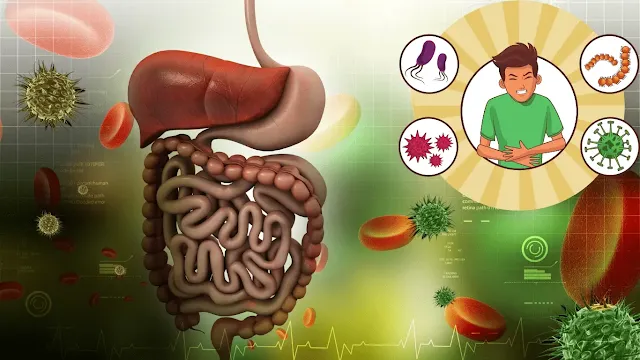
Digestion is a complex process involving various enzymes, and one key player in this symphony is pepsin. In this comprehensive guide, we will delve into the intricacies of pepsin – its functions, importance in digestion, and factors influencing its optimal performance.
What is Pepsin?
Pepsin is an enzyme essential for breaking down proteins in the stomach. It is primarily produced in the gastric glands and activated when combined with gastric acid. This enzymatic duo plays a crucial role in the initial stages of protein digestion.
The Role of Pepsin in Digestion
Pepsin's primary function is to break down complex protein structures into smaller peptides, facilitating their absorption in the small intestine. The interaction between pepsin and gastric acid creates an acidic environment necessary for its optimal enzymatic activity.
Importance of Optimal Pepsin Levels
Maintaining the right levels of pepsin is vital for overall digestive health. Imbalances can impact nutrient absorption, potentially leading to digestive disorders. Factors such as diet, age, and medications can influence pepsin production.
Natural Remedies for a Healthy Gut—Stomach Saviour
Pepsin and pH Levels
Pepsin thrives in an acidic environment. We explore the significance of pH balance in the stomach and how it directly influences the activity of pepsin during the digestion process.
Conditions Affecting Pepsin Function
Various factors, including medications, dietary choices, and age, can affect pepsin function. Understanding these influences is crucial for promoting optimal digestive health.
Symptoms of Pepsin Imbalance
Recognizing symptoms of pepsin imbalance is essential for early intervention. From gastric discomfort to long-term health implications, we discuss the signs that indicate a potential issue with pepsin levels.
Diagnostic Methods for Pepsin Levels
Learn about the medical tests and consultations with healthcare professionals that can help assess and monitor pepsin levels, ensuring timely detection and management of digestive issues.
Maintaining Pepsin Balance
Practical tips on dietary recommendations, lifestyle changes, and the use of supplements and medications to support and maintain optimal pepsin levels for improved digestive well-being.
Natural Remedies for a Healthy Gut—Stomach Saviour
Pepsin Supplements: Pros and Cons
Explore the benefits and potential side effects of pepsin supplements, emphasizing the importance of consulting healthcare providers before incorporating them into your routine.
Research and Innovations
Stay informed about ongoing studies on pepsin, potential future applications, and the scientific community's interest in unlocking more secrets about this crucial digestive enzyme.
Common Myths about Pepsin
Separate fact from fiction as we debunk common misconceptions about pepsin, ensuring a clear understanding of its role and importance in the digestive process.
Conclusion
In conclusion, this guide aims to highlight the significance of pepsin in digestion and promote awareness about maintaining optimal levels for overall well-being. By making informed choices in diet and lifestyle, individuals can support their digestive health and enjoy a better quality of life.
Natural Remedies for a Healthy Gut—Stomach Saviour
FAQs
1. Can I get enough pepsin from my diet alone?
- While some pepsin comes from your diet, the body primarily produces it. Factors like age and health conditions can impact natural pepsin production.
2. Are there natural ways to boost pepsin levels?
- Yes, certain foods and lifestyle changes can support optimal pepsin levels, including consuming protein-rich foods and maintaining a balanced diet.
3. Do pepsin supplements have any side effects?
- Like any supplement, pepsin supplements may have side effects. It's crucial to consult with a healthcare professional before incorporating them into your routine.
4. Can pepsin imbalance lead to long-term health issues?
- Prolonged imbalance in pepsin levels may contribute to digestive disorders and nutrient absorption issues, potentially impacting overall health.
5. How often should I get my pepsin levels checked?
- It is advisable to consult with a healthcare professional to determine the appropriate frequency for checking pepsin levels based on individual health circumstances.
Natural Remedies for a Healthy Gut—Stomach Saviour
Discover lasting relief for your gut issues with natural solutions. Fast and effective methods for a healthier stomach.
